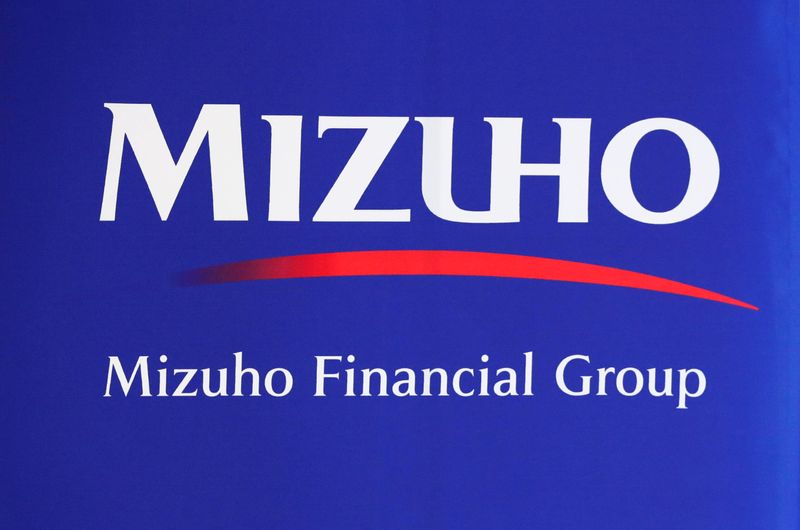By Makiko Yamazaki and Ritsuko Shimizu
TOKYO (Reuters) – Japan’s Mizuho Financial Group is holding off on buying government bonds as a sustained economic recovery may prompt the central bank to exit its negative interest rate policy early next year, a senior executive said.
After decades spent trying to escape from deflation, the world’s third-largest economy is now starting to see evidence of change, including glimpses of a virtuous circle where rising inflation lifts profits, wages and spending, Kenya Koshimizu, the co-head of Mizuho’s global markets division, said.
His comments underscore how Mizuho and other top Japanese banks are now reckoning with a looming inflection point as Japan’s economy approaches policy normalisation after years of little growth, weak consumer spending and massive central bank easing.
Assuming that risks related to U.S. and Chinese financial markets remain contained, there is a “considerable chance” the Bank of Japan (BOJ) would move to end negative interest rates once the outlook for next year’s wage talks becomes clear, Koshimizu told Reuters in an interview.
Annual wage talks between companies and unions commonly take place in February or March.
“The Japanese economy is beginning to see a structural change for the first time in three decades,” Koshimizu said.
BOJ SURPRISE
Last month the BOJ took steps to allow long-term rates to move more freely in line with increasing inflation and growth, surprising the market, and allowing the yield on 10-year Japanese government bonds (JGB) to cross 0.6% for the first time since 2014.
That has raised the once-unthinkable prospect of higher borrowing costs, portending a massive change for banks after decades of rock-bottom rates.
Mizuho has shortened the duration of its domestic bond portfolio since around October last year in anticipation for possible BOJ policy changes, and is not planning to change its stance soon, Koshimizu said.
“Given that we are awash with deposits, of course we very much want to invest,” he said. “But as current economic fundamentals could push bond yields up further, this may be the time to wait. There are times when we need to be patient.”
The Japanese banking sector was the biggest holder of JGBs before former BOJ chief Haruhiko Kuroda deployed in 2013 a huge asset-buying scheme that pushed yields down and prompted the banks to shift deposits to their current accounts at the central bank.
As a result, their JGB ownership share fell from 43% to 11% as of March this year, with the BOJ replacing the banks as the biggest JGB holder. Their current account deposits instead ballooned, a majority of which is on deposit at 0% yield.
Koshimizu said there would be a reversal of fund flows in the banking sector to the JGB market as Japan’s exit from deflation makes JGBs a feasible investment target. “But the pace of the shift would depend on the rate situation as the Japanese economy is changing drastically.”
(Reporting by Makiko Yamazaki and Ritsuko Shimizu; Editing by David Dolan and Shri Navaratnam)
